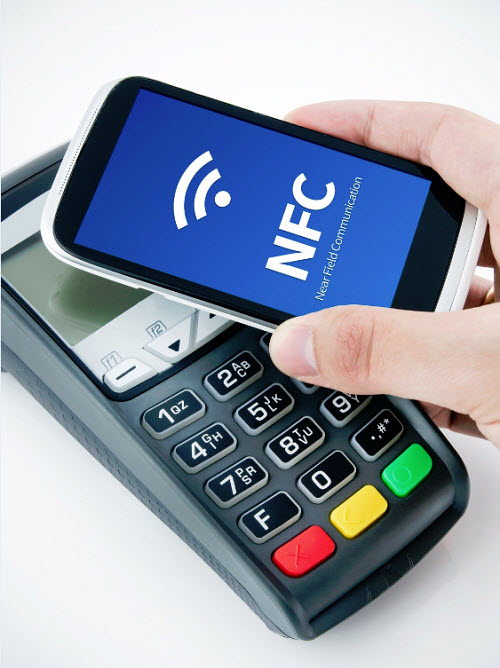The agreement has been designed to give the two companies a new opportunity in the Ghana market.
Verifone Mobile Money has now partnered with Airtel Ghana in order to be able to provide a new mobile payments solution that is based on NFC technology that can be used through mobile devices within that country.
The near field communication based service will make it possible for consumers to “tap and pay”.
The idea behind the partnership is to be able to use this NFC technology to be able to provide consumers with a simpler and easier method of paying for the products and services that they wish to purchase. The transactions are designed to be both convenient and secure. This partnership will bring the strengths of both companies into a single transaction service that will become widely available.
The NFC technology based transactions will be available at a range of sale outlets across Ghana.
 These mobile payments will be available to be used by owners of NFC enabled devices at the many Airtel Merchants as well as other point of sale outlets throughout the country. This will provide a process for completing transactions that is very quick and easy. Once a customer reaches the checkout counter, all he or she needs to do is tap the near field communication enabled smartphone against a reader device in order to launch a payment by way of the individual’s mobile wallet.
These mobile payments will be available to be used by owners of NFC enabled devices at the many Airtel Merchants as well as other point of sale outlets throughout the country. This will provide a process for completing transactions that is very quick and easy. Once a customer reaches the checkout counter, all he or she needs to do is tap the near field communication enabled smartphone against a reader device in order to launch a payment by way of the individual’s mobile wallet.
That said, it will also be possible for people who don’t have NFC enabled smartphones to be able to pay by way of this technology by using an enabled sticker that will also give them the technology that they require.
The Verifone Mobile Money chief executive, Chris Jones spoke about the NFC technology based payments agreement between the two companies, saying that it “will deliver developed world technologies to the customers of Airtel Money. We believe that NFC technology and the roll out of contactless “tap and pay” across the African continent will help to realize the true economic benefits of cashless economies while driving mobile money adoption through an improved merchant payments experience.”
A new form of tech developed by University of Alabama at Birmingham researchers is simple but effective.
Researchers from the University of Alabama at Birmingham have now come up with a new form of mobile security protection that uses certain simple but highly effective techniques that are able to stop sophisticated malware from sneaking their way into smartphones in order to attack them.
The development of this type of protection against mobile malware has become vitally important.
As well over half of all American adults now have smartphones, mobile security has become critical to providing protection against malware and other forms of cyber attack. While it is well recognized that computers such as laptops and desktops require this type of protection – typically in the form of firewalls and antivirus programs – many mobile device owners don’t realize how vulnerable their smartphones truly are. Moreover many of the apps that are available to protect devices take up too much space and require too much power.
This new mobile security technology has been developed to overcome those problems for improved protection.
 The new form of mobile malware defense technology was revealed in St. Louis at the IEEE International Conference on Pervasive Computing and Communications. As smartphones become more important and more commonplace, they have become prime targets to people who would seek to use them for malicious activities. This has caused an explosion in malware that can enter into mobile devices by way of any number of sources.
The new form of mobile malware defense technology was revealed in St. Louis at the IEEE International Conference on Pervasive Computing and Communications. As smartphones become more important and more commonplace, they have become prime targets to people who would seek to use them for malicious activities. This has caused an explosion in malware that can enter into mobile devices by way of any number of sources.
Primarily, this involves hidden malicious codes buried inside downloaded apps. Once they have been installed into mobile technology devices, there are various ways in which it can then exploit the gadget. This can include learning sensitive personal information about the user, taking over the camera to spy on the user, or even making premium rate phone calls without the user ever being aware that this is occurring.
It may even activate the NFC (near field communication technology) in the device for an entirely new form of mobile security problem – scanning for nearby credit cards that are NFC enabled for contactless payments. The researchers have come up with a way to more effectively block this type of digital invasion.
 These mobile payments will be available to be used by owners of NFC enabled devices at the many Airtel Merchants as well as other point of sale outlets throughout the country. This will provide a process for completing transactions that is very quick and easy. Once a customer reaches the checkout counter, all he or she needs to do is tap the near field communication enabled smartphone against a reader device in order to launch a payment by way of the individual’s mobile wallet.
These mobile payments will be available to be used by owners of NFC enabled devices at the many Airtel Merchants as well as other point of sale outlets throughout the country. This will provide a process for completing transactions that is very quick and easy. Once a customer reaches the checkout counter, all he or she needs to do is tap the near field communication enabled smartphone against a reader device in order to launch a payment by way of the individual’s mobile wallet.
 The new form of mobile malware defense technology was revealed in St. Louis at the IEEE International Conference on Pervasive Computing and Communications. As smartphones become more important and more commonplace, they have become prime targets to people who would seek to use them for malicious activities. This has caused an explosion in malware that can enter into mobile devices by way of any number of sources.
The new form of mobile malware defense technology was revealed in St. Louis at the IEEE International Conference on Pervasive Computing and Communications. As smartphones become more important and more commonplace, they have become prime targets to people who would seek to use them for malicious activities. This has caused an explosion in malware that can enter into mobile devices by way of any number of sources.